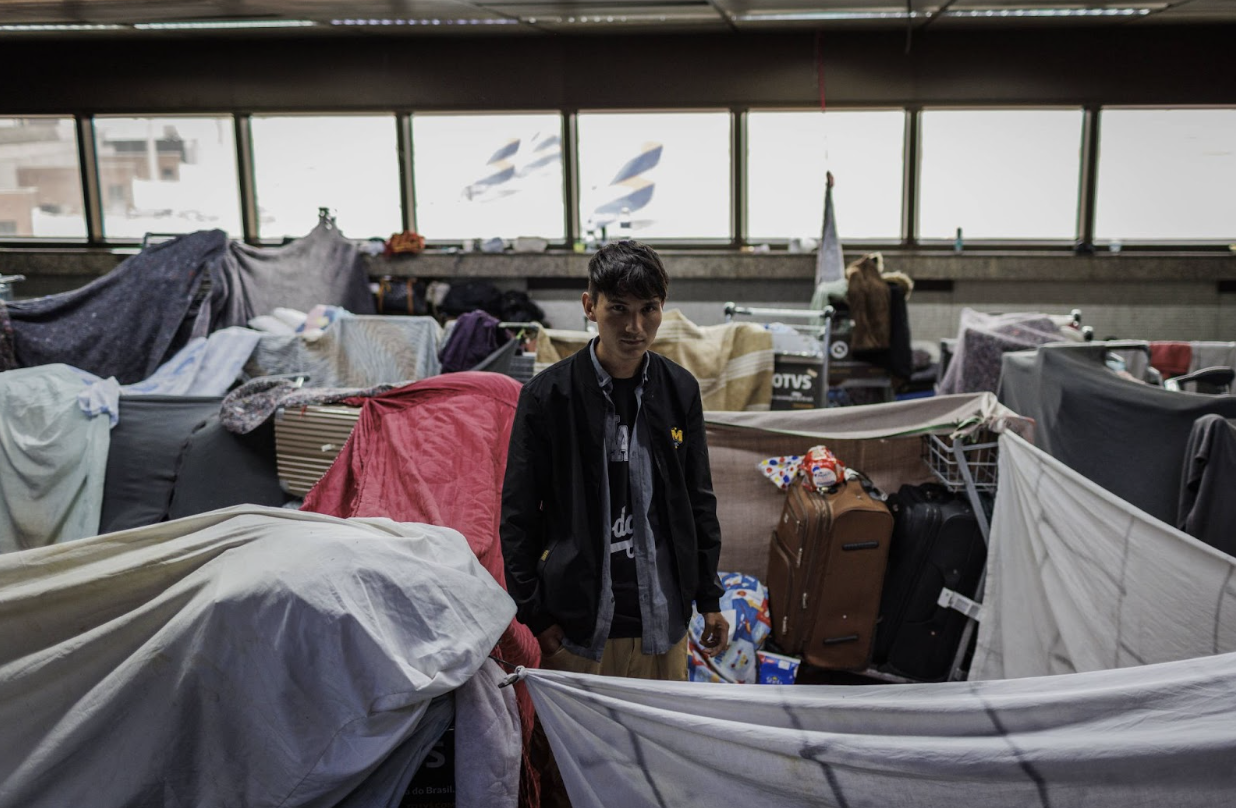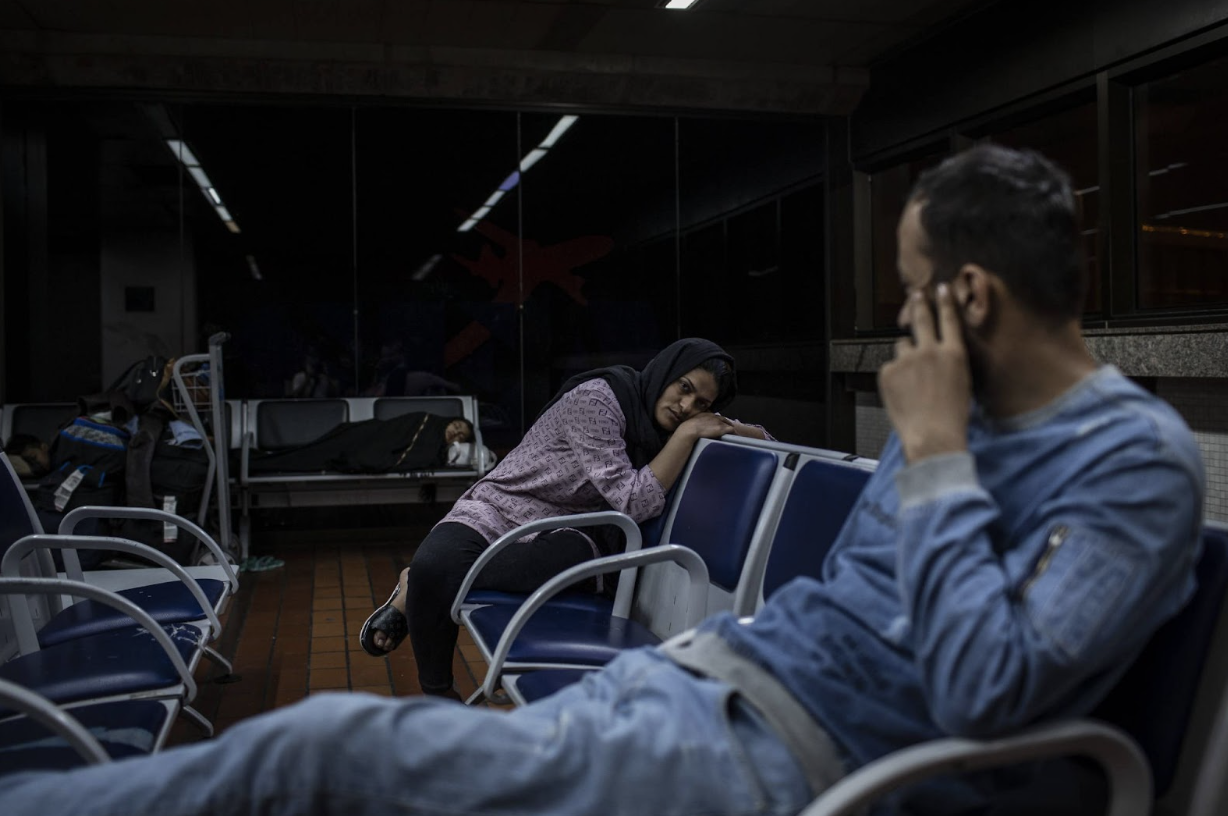Guarulhos Airport in São Paulo Becomes a Provisory Camp for Afghans Escaping the Taliban Regime
These Afghan migrants are using blankets and luggage cars as makeshift shelters in the airport. Source: Bruno Santos/Folhapress
Early last week, 181 Afghan migrants escaping the Taliban regime were forced to camp in Guarulhos Airport in São Paulo upon their arrival in Brazil. Without vacancies in local shelters, they found no other option but to remain in the airport until housing accommodations could be made. The majority do not possess the required documentation or resources to afford private accommodation in Brazil.
This is the second time in one month that incoming Afghans were obligated to settle in the halls of Guarulhos, the largest international airport in South America. On Sept. 16, 93 other people were transferred to a shelter after they had spent days living in the airport. Children, pregnant women, the elderly, and other vulnerable groups were forced to sleep on the floor of GRU, without access to showers or basic sanitary facilities.
Last Thursday, 54 Afghans were relocated to provisional housing in Morungaba, in the countryside of São Paulo. Two of those relocated felt uncomfortable with the distance of the town from São Paulo, and decided to rejoin the remaining 127 migrants still waiting for accommodation. More people have arrived this weekend, and in the last news report, 160 people were stationed in the airport on Saturday.
The influx of Afghan migrants worldwide escalated dramatically since the Taliban rose to power in 2021. In Sept. 2021, Brazil launched a program to provide temporary humanitarian visas for people escaping the oppressive Taliban government. This type of visa must be processed at a consular authority outside of the country, which allows Afghan nationals in Pakistan and Iran, for example, to acquire legal status before their arrival. Though the Brazilian government successively issued 6,299 visas since last year, it suspended the program in recent months due to skyrocketing demand.
The precarious conditions Afghans have encountered in Guarulhos are making many consider leaving Brazil soon. Source: Bruno Santo/Folhapress
Since January, nearly 2,000 Afghan nationals have made their way to Brazil. This number is expected to quadruple in 2023, and has left institutions like the offices of the Federal Public Defender and Federal Prosecutor concerned. The cities of Guarulhos and São Paulo lack the proper infrastructure to welcome these migrants. However, if not even the economic capital of the country has the resources to receive these refugees, what can be said about the rest of Brazil?
The South American nation is currently facing one of its worst hunger crises: 58.7 percent of the population is living with some level of food insecurity, with approximately 33 million people experiencing severe food insecurity. Rising levels of famine brought Brazil back on to the World Food Programme's Hunger Map. In addition, nearly 10 percent of the population is unemployed, with many qualified people struggling to find a job.
Both COVID-19 and internal turmoil have destabilized the country economically and politically, which raises questions about the extent to which Brazil is equipped to host Afghan migrants. However, when the federal government announced the issuing of humanitarian visas to this group, it committed to supporting them.
The Brazilian activist Swany Zenobini, who reported on the Afghans' situation in Guarulhos, emphasized, "The solution is not to stop issuing humanitarian visas for Afghans. They are profoundly grateful for being welcomed in Brazil. The solution is to create public policies that address the refugee agenda as a priority. Providing a visa is not sufficient: it is necessary to provide the proper conditions to receive these people with dignity."
The choice of Afghans to relocate to countries like Brazil, which may not have sufficient structures in place to help them, reveals the severity of the situation in Afghanistan. Despite hunger, violence, and unemployment in Brazil, migrants believe they can have a better life in this context than in the one they came from. The refugee crisis is only expected to get worse in the years to come; thus, countries in Latin America and across the globe must be prepared to welcome these refugees.


